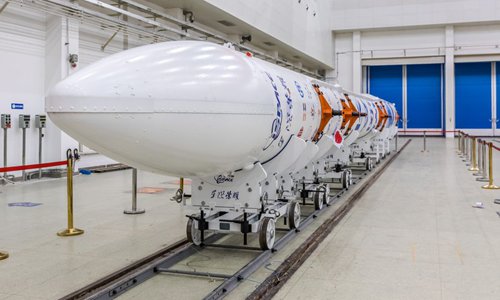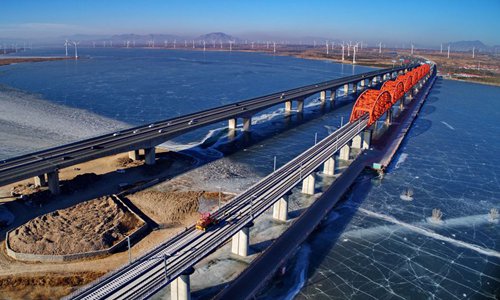China's success proves Western development model "by no means the only option": scholar
Source:Xinhua Published: 2019/10/18 11:10:48

Photo taken on July 23, 2019 shows the carrier rocket SQX-1 Y1 in the Jiuquan Satellite Launch Center in northwest China. (i-Space/Handout via Xinhua)
China's "splendid success" in economic growth and poverty alleviation in the past 70 years proves that the Western development model "is by no means the only option," a scholar in the United States has said.
The reform and opening-up has enabled China's economy to develop "at an unprecedented speed," James Chieh Hsiung, professor of politics at New York University (NYU), told Xinhua recently.
Apart from the economic success, China's lifting of hundreds of millions of people out of poverty over the past 40 years is "indeed a world miracle," said the 84-year-old professor, who teaches international relations of Asia, international law, and international governance at the NYU.
Much of China's success is due to its ability to combine socialism and the market economy, making them reinforce each other, the professor said. "To put it in a simple way, the result is '1 + 1 > 2.'"

Aerial photo taken on Jan. 13, 2019 shows workers laying tracks for the Beijing-Zhangjiakou high-speed railway line at Guanting Reservoir grand bridge in north China's Hebei Province. (Xinhua/Yang Shiyao)
It proves that Western capitalism is by no means the only option for a country's development, he said.
Another important factor that leads to the success of China's reform and opening-up is "the unified leadership of the ruling Communist Party of China (CPC)," Hsiung said.
The CPC's unified leadership guarantees effective implementation of national policies from the central government to local levels, he said. "This is something totally different from how divided and weak China was before 1949."
China's remarkable achievements in the past 70 years make it clear that Chinese culture and philosophy "got many advantages in national political and economic governance, and Chinese people have every reason to be confident and proud about their history and culture," Hsiung said.